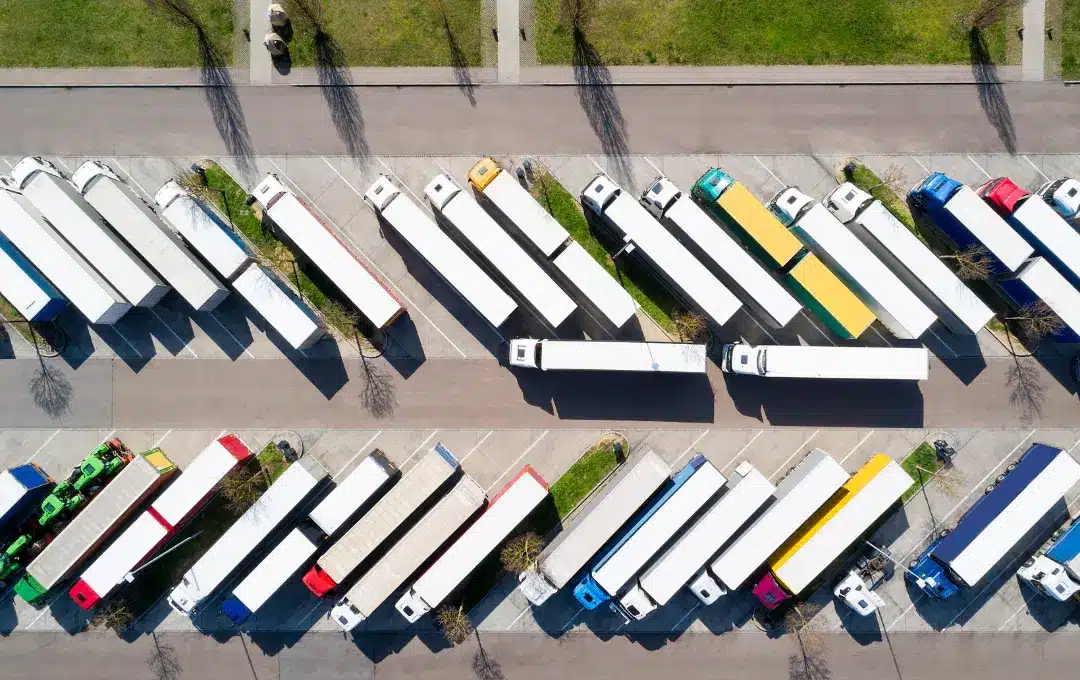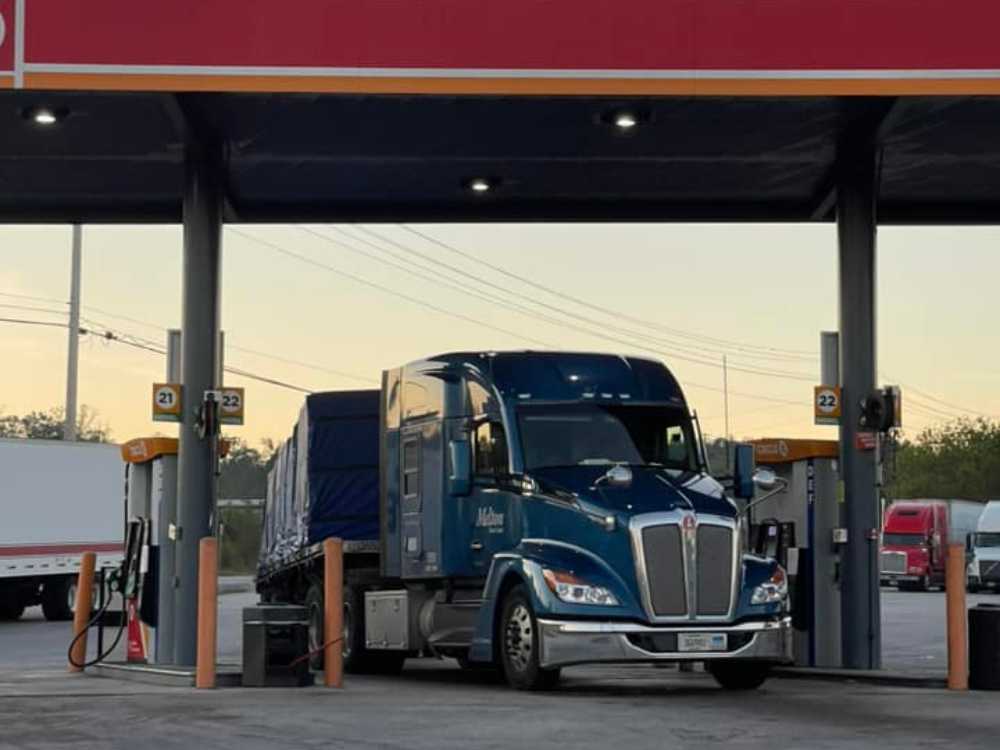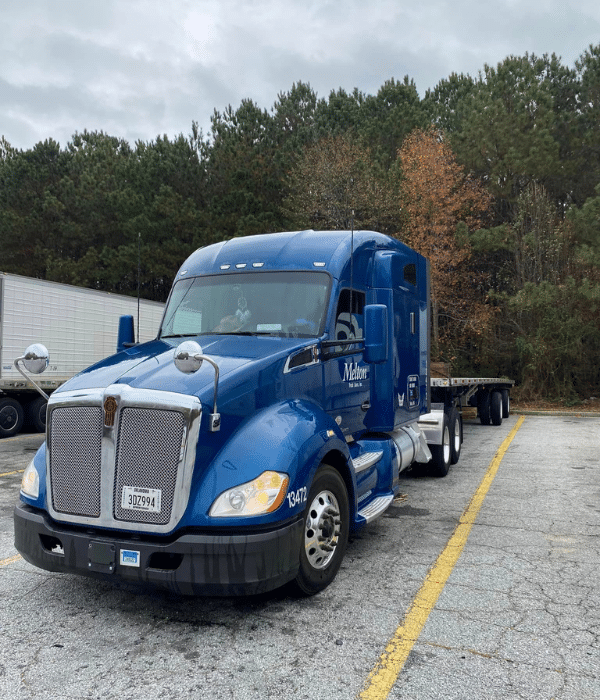
Truck Stop Etiquette That Every Driver Should Know
Whether it’s the end of a long day when you’re ready to take a break, or if you’re just looking for a quick spot to refuel, truck stops are the go-to for any long-haul driver looking for somewhere to pull in. Once you’re in the lot, though, do you know your truck stop etiquette?
While all truck stops have some differences, they all share some unspoken rules. Take this advice, and you’ll navigate truck stops successfully without ruffling any feathers. Whether you’re stopping to refuel or parking for the night, be careful and considerate when visiting truck stops.
Do: Drive Slowly & Follow Traffic
Busy parking lots are a perfect environment for accidents. So much happens at a truck stop that it can be easy to miss something (especially if you’re backing into a space). Driving slowly and paying careful attention to your mirrors and general surroundings is the key to avoiding any mishaps. Pay attention when you first pull in and observe the traffic pattern. Cutting lines or taking your own route may seem faster, but you should always follow the traffic pattern to keep yourself and others safe.
Don’t: Take a Break at the Fuel Line
The fuel line is not a parking spot — it may seem natural to start your break, fuel up, and stay in one place for 30 minutes or more. However, sitting in the fuel lane for an extended time is inconsiderate to drivers who must fuel and leave quickly. Some truck stops actively prohibit this, and you definitely don’t want a conversation with that manager. If you plan on taking a break, find a parking spot after fueling.

Do: Keep Your Music Low
A truck stop is noisy, and almost every driver there is on a different schedule. Remember to turn your music down if you’re parking for a break, as keeping the noise level low is courteous to those trying to rest or sleep. Turning your engine off can help with noise levels, too.
Don’t: Knock on Other Driver’s Doors
When drivers are parked, it’s best practice to assume others are sleeping or getting much-needed R & R in their cab. Don’t knock on a trucker’s door and interrupt their downtime unless they’ve invited you to, or if it’s necessary to alert them about something urgent. If you want to socialize, try striking up conversations with drivers inside the truck stop. You’ll likely find a truck driver to speak with in the lounge or restaurant, or have a seat for a while and let the conversation come to you!
Do: Park Strategically
Parking lots can be hectic. Truck stops have fueling stations, maintenance areas, truck washes and rest areas, all of which may be teeming with others looking to get in and out as soon as possible. When you park, you want to choose a good spot away from the mayhem. If you can, avoid parking at the end of the row. It may seem easier to park on the end initially, but parking on the end puts your truck near the flow of traffic and may increase the risk of someone hitting your truck or damaging your equipment.
Another tip for truck drivers is to back into your parking spot whenever possible. While backing in takes more time when you arrive, you’ll have an easier experience leaving the truck stop when it’s time to hit the road.
Don’t: Talk About Freight
Avoid talking about your freight if you can; you never know who’s listening or who you can trust. Though most people at any given truck stop are trustworthy, thieves may try to break into your trailer or cab if they hear you are carrying valuable freight or personal belongings. Help your and other drivers’ freight stay safe by keeping the details to yourself. This doesn’t mean you can’t chat with others around you! Having a conversation with fellow drivers and connecting over other trucking experiences helps break up the time you spend alone driving. Just avoid divulging details about what you’re hauling- whether in the cab, or on the trailer.
Do: Reserve Your Parking Spot
The lack of truck parking is a top concern for drivers across the country, as most truck stops are on first-come, first-serve basis and have less parking spots than drivers are looking for a place to stop. At many larger truck stop chains, you may be able to reserve parking ahead of time. Making a reservation ensures you get a spot, and you’ll know where you’re parking before you get there. Pilot and Flying J’s offer an app for drivers to download and reserve their parking easily, along with many other popular stops.

Do: Be Kind
A little kindness goes a long way. While you’re stopping, remember to be kind and polite to the employees and your fellow drivers. One small gesture can make someone’s day. If you see an opportunity to help someone out, don’t hesitate to jump in and lend a hand if you have time and it’s safe to do so. Many people avoid conversations with strangers when they are out and about, but small interactions with others can make us feel happier and less isolated. While some drivers may not want to be bothered, others may appreciate a simple “hello” or small talk.
With all these tips in mind, you’ll be ready to navigate truck stops like an expert. At Melton, our training program ensures you’ll be ready to hit the road on your own by pairing you with an experienced driver trainer. Not only will you learn more about proper securement and driving practices, but you’ll also learn how to adjust to the OTR lifestyle and how to make the most of a truck stop visit. To learn more about our training program, visit our pre-hire evaluation page.
